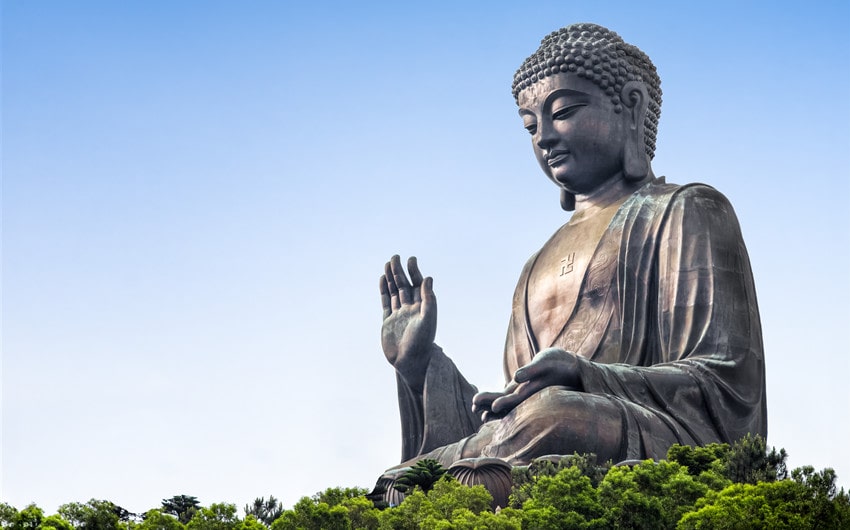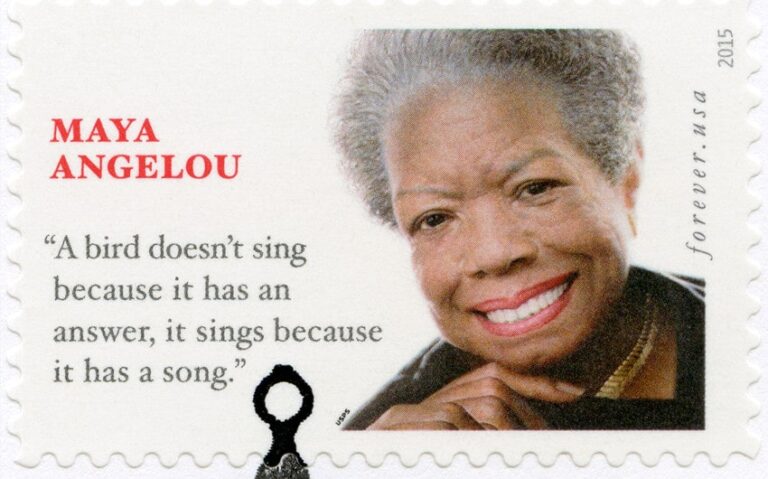Buddha Sayings About Happiness: 35 Timeless Quotes to Inspire Inner Joy and Peace
Happiness, according to Buddha, is not something you chase—it’s something you cultivate from within. His timeless teachings remind you that happiness is rooted in simplicity, presence, compassion, and freedom from attachment. In this article, you will discover 35 profound Buddha sayings about happiness, each followed by a thoughtful reflection to help you apply his wisdom to your modern life, emotional well-being, and inner peace journey.
Buddha Sayings About Happiness
- “There is no path to happiness: happiness is the path.”
This quote teaches that happiness isn’t a destination you reach after achieving certain goals or conditions. It’s a way of living moment by moment, choosing joy in the present rather than waiting for future events to bring it. When you let go of chasing happiness and instead walk each step with gratitude and presence, joy naturally unfolds along the journey. - “Happiness never decreases by being shared.”
True happiness multiplies when you share it with others. Acts of kindness, generosity, and compassion don’t deplete your joy—they expand it. In today’s world, where many guard their happiness tightly, Buddha reminds you that the simple act of sharing a smile, a kind word, or support can uplift both the giver and receiver. - “Thousands of candles can be lit from a single candle, and the life of the candle will not be shortened.”
Your happiness and inner light are not finite resources. By inspiring, encouraging, and nurturing others, you don’t lose your own joy—you help ignite it in countless lives. This quote encourages you to be a light-bearer, knowing that joy shared is joy multiplied. - “Peace comes from within. Do not seek it without.”
External circumstances, possessions, or validation will never bring lasting peace or happiness. Buddha teaches that inner peace arises from within your own heart and mind. When you turn inward, releasing attachments and quieting your thoughts, you create space for authentic happiness to emerge. - “It is not what you have, or who you are, or where you are, or what you are doing that makes you happy or unhappy. It is what you think about.”
Happiness begins with your thoughts. Even in difficult situations, if you cultivate mindful, compassionate, and positive thoughts, you can experience moments of joy. This quote reminds you to become aware of your mental habits and choose thoughts that nourish rather than deplete your spirit. - “Better than a thousand hollow words is one word that brings peace.”
Sometimes, silence or a single sincere word holds more power than endless empty chatter. In relationships and inner dialogue, Buddha encourages you to speak—and think—with mindfulness and kindness. Words that comfort, heal, and bring peace create happiness for both the speaker and the listener. - “You yourself, as much as anybody in the entire universe, deserve your love and affection.”
Self-love is not selfish; it’s the foundation of happiness. Buddha’s gentle reminder invites you to treat yourself with the same compassion and care you offer to others. When you nurture your own well-being, you create a reservoir of joy that can overflow into the world around you. - “Holding onto anger is like drinking poison and expecting the other person to die.”
Clinging to anger only poisons your own heart, blocking happiness and peace. Buddha teaches that forgiveness—toward yourself and others—is an act of liberation. Releasing resentment frees your energy for joy, creativity, and connection. - “Let go of the past, let go of the future, and let go of the present. With a heart that is free, you can find peace anywhere.”
Attachment to time, outcomes, or past wounds keeps you stuck in suffering. Buddha reminds you that freedom—and happiness—come when you let go of your grasp on what was or what might be. In surrendering, you find the deep peace that already exists within you. - “The mind is everything. What you think you become.”
Your thoughts shape your reality. If your mind is filled with negativity, fear, or scarcity, your experiences will reflect that. By cultivating thoughts of kindness, gratitude, and joy, you create the conditions for happiness to thrive in your life. - “To understand everything is to forgive everything.”
Compassion arises from understanding. When you see others’ suffering, fears, and wounds, it becomes easier to release judgment and open your heart. Forgiveness is not about condoning harm—it’s about freeing yourself from the heavy chains of anger and blame, allowing happiness to return. - “The root of suffering is attachment.”
Clinging to things, people, or expectations is the source of much unhappiness. Buddha invites you to loosen your grip and embrace impermanence. In letting go, you create space for peace and joy to enter your life naturally, without conditions. - “Health is the greatest gift, contentment the greatest wealth, faithfulness the best relationship.”
This quote reminds you to honor the simple blessings in life: your health, your ability to be content with what you have, and the value of loyalty in your relationships. True happiness often comes not from extraordinary events, but from appreciating these quiet treasures of daily life. - “Do not dwell in the past, do not dream of the future, concentrate the mind on the present moment.”
Presence is the gateway to happiness. When you anchor yourself in the here and now, you free yourself from regrets and worries. Buddha teaches that joy is always available in the present, waiting for you to notice it with open awareness. - “When you realize how perfect everything is, you will tilt your head back and laugh at the sky.”
This quote points to the liberating truth that acceptance brings peace. Even when life feels imperfect, when you surrender to the flow of existence, you touch a deeper happiness that comes from harmony with what is. Joy blooms when you let go of resistance and embrace life’s unfolding mystery.
- “If you want to fly, give up everything that weighs you down.”
Buddha reminds you that clinging to burdens—whether they’re old beliefs, regrets, or fears—keeps you tethered to suffering. Happiness requires lightness, and that lightness comes from releasing what no longer serves you. When you let go, you create space to rise, to breathe, and to experience joy freely and fully. - “Happiness comes when your work and words are of benefit to yourself and others.”
Genuine happiness grows when you live in alignment with your values. When your actions contribute to the well-being of others and honor your own integrity, a deeper fulfillment emerges. This quote invites you to reflect on whether your daily work and words nurture joy and kindness within and around you. - “Be where you are; otherwise you will miss your life.”
Distraction, busyness, and overthinking pull you away from the present, where true happiness resides. Buddha encourages you to anchor yourself fully in this moment—whether it’s joyful, ordinary, or challenging. By meeting life as it is, you open yourself to its subtle gifts and joys. - “True love is born from understanding.”
Love that leads to happiness is not rooted in fantasy, but in compassionate understanding. By seeing others clearly, accepting their flaws and fears, you create relationships based on acceptance rather than control. This depth of love nourishes peace, trust, and joy that can’t be shaken by circumstances. - “Just as a candle cannot burn without fire, men cannot live without a spiritual life.”
Buddha highlights that spiritual practice—whether it’s meditation, mindfulness, or compassionate action—is essential to a happy, fulfilled life. When you neglect your inner world, life feels hollow. Tending to your spirit is not luxury—it’s the fire that keeps your joy alive, even in darkness. - “Nothing can harm you as much as your own thoughts unguarded.”
Your mind can be your greatest ally or your deepest source of suffering. Buddha reminds you to cultivate awareness of your thoughts, gently redirecting them toward kindness, patience, and acceptance. Mindfulness is the path that protects your happiness from the storms of negative thinking. - “He who envies others does not obtain peace of mind.”
Comparison steals joy. When you focus on what others have, you disconnect from your own life and its unique blessings. Buddha invites you to celebrate others’ happiness without jealousy, and in doing so, reclaim your own peace and gratitude. - “No one saves us but ourselves. No one can and no one may. We ourselves must walk the path.”
Happiness is a personal journey. While others can inspire or support you, the work of healing, growth, and joy belongs to you alone. This truth is both empowering and humbling—it calls you to take responsibility for your inner peace, knowing you hold the key within. - “Hatred does not cease by hatred, but only by love; this is the eternal rule.”
When anger is met with anger, suffering deepens. Buddha teaches that love and compassion are the only forces strong enough to dissolve hatred and restore peace. Choosing love over retaliation is not weakness—it’s the courageous act of preserving your happiness and protecting your heart from bitterness. - “A disciplined mind brings happiness.”
A restless, scattered mind leads to anxiety and dissatisfaction. Buddha encourages you to cultivate mental discipline—not through harsh control, but through steady mindfulness and focus. A calm, centered mind becomes fertile ground where happiness can take root and grow. - “Give, even if you only have a little.”
Generosity opens the heart. Even small acts of giving—your time, a smile, a kind word—expand your sense of connection and joy. Buddha reminds you that abundance is not measured by how much you have, but by how freely you share what you do have. - “Joy comes not through possession or ownership but through a wise and loving heart.”
True joy isn’t found in material things—it arises from a heart that loves wisely and lives kindly. Buddha invites you to release your grasp on possessions as the source of happiness, and instead cultivate joy through compassion, presence, and open-hearted living. - “Your worst enemy cannot harm you as much as your own unguarded thoughts.”
This quote echoes Buddha’s teaching on the power of your inner world. No external foe can create as much suffering as your unchecked, harsh, or fearful thoughts. Protecting your mind with mindfulness and compassion is essential to cultivating lasting happiness. - “What we think, we become. All that we are arises with our thoughts.”
Buddha teaches that your thoughts shape your reality, coloring your perceptions and emotional experiences. By nurturing positive, kind, and wise thoughts, you sculpt a life that reflects those qualities. Happiness begins in the mind—it is both your starting point and your destination. - “Better it is to live one day seeing the rise and fall of things than to live a hundred years without ever seeing the rise and fall of things.”
Witnessing life’s impermanence is not a source of sorrow, but of profound peace. Buddha encourages you to embrace the fleeting nature of all things, knowing that in this awareness lies freedom. When you accept change, you release clinging, and with it, much suffering—making space for happiness that flows with life, not against it. - “Let go of fear, and happiness will come.”
Fear blocks joy. Buddha’s wisdom reminds you that happiness arises when you release fear’s grip—whether it’s fear of loss, rejection, or failure. By facing your fears with courage and compassion, you create space for happiness to enter and stay. - “To live a pure unselfish life, one must count nothing as one’s own in the midst of abundance.”
Detachment doesn’t mean rejecting abundance—it means not clinging to it as your source of identity or worth. Buddha teaches that freedom comes from letting go of possessiveness, allowing you to enjoy life’s riches without being enslaved by them. - “Everything that has a beginning has an ending. Make your peace with that and all will be well.”
This simple yet profound truth brings comfort and release. When you accept the impermanence of all things, you loosen your grip on what was and open your heart to what is. Happiness arises not from holding tightly, but from flowing gracefully with life’s cycles. - “Those who are free of resentful thoughts surely find peace.”
Resentment is a heavy burden that robs you of peace and joy. Buddha invites you to release grudges, knowing they harm you more than anyone else. By choosing forgiveness, you free yourself and make space for happiness to bloom in your heart again. - “Contentment is the greatest wealth.”
Happiness does not require more—it requires enough. Buddha teaches that contentment with what you have is the greatest treasure. In a world of endless striving, practicing contentment anchors you in joy, gratitude, and peace that can’t be shaken by circumstances.
Final Thought
Buddha’s teachings on happiness are timeless reminders that true joy comes not from external achievements or possessions, but from within. By practicing mindfulness, compassion, detachment, and presence, you can cultivate a happiness that is enduring, peaceful, and free. Let these 35 sayings serve as gentle companions on your path toward inner joy, reminding you that happiness isn’t something you chase—it’s something you allow to bloom from the quiet depths of your own heart.






